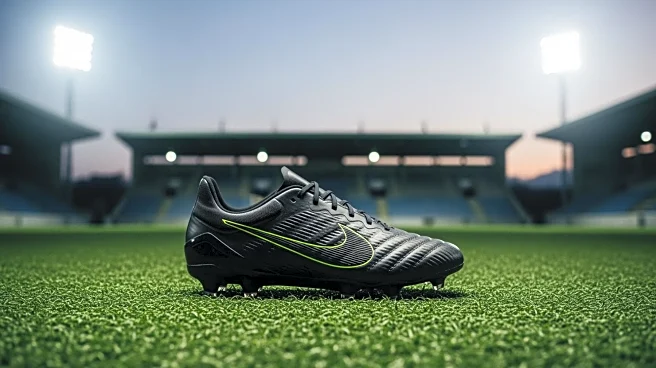What's Happening?
Achraf Hakimi, a prominent defender for Paris Saint-Germain (PSG) and the Moroccan national team, sustained an injury during a Champions League match against Bayern Munich. The injury occurred following
a challenge by Luis Diaz, which resulted in a red card for Diaz. Despite initial concerns, reports from Foot Mercato indicate that Hakimi will not require surgery. The estimated recovery period is six to eight weeks, which places his return close to Morocco's first match in the Africa Cup of Nations on December 21. Hakimi's participation in the tournament is crucial for Morocco, as he is a key player in their quest for victory.
Why It's Important?
Hakimi's injury is significant due to his role as a star player for Morocco, a team with high aspirations in the Africa Cup of Nations. His potential absence or limited participation could impact Morocco's performance and strategy in the tournament. For PSG, Hakimi's injury affects their defensive lineup, potentially influencing their performance in upcoming matches. The situation highlights the challenges teams face when key players are injured, affecting both club and national team dynamics. Stakeholders in the football community, including fans and team management, are closely monitoring Hakimi's recovery and its implications.
What's Next?
The next steps involve monitoring Hakimi's recovery progress to determine his availability for the Africa Cup of Nations. Morocco's coaching staff will need to assess his fitness and decide on his role in the tournament. PSG will also have to adjust their defensive strategies in his absence. The situation may prompt discussions on player safety and the impact of aggressive play in high-stakes matches. Fans and analysts will be watching closely to see how Morocco adapts to potential changes in their lineup and strategy.
Beyond the Headlines
Hakimi's injury raises broader questions about player welfare and the physical demands of professional football. It underscores the importance of managing player health and recovery, especially in the context of international tournaments. The incident may lead to discussions on the enforcement of rules regarding dangerous play and the protection of players from injury. Long-term, this could influence policies and practices within football leagues and governing bodies.









